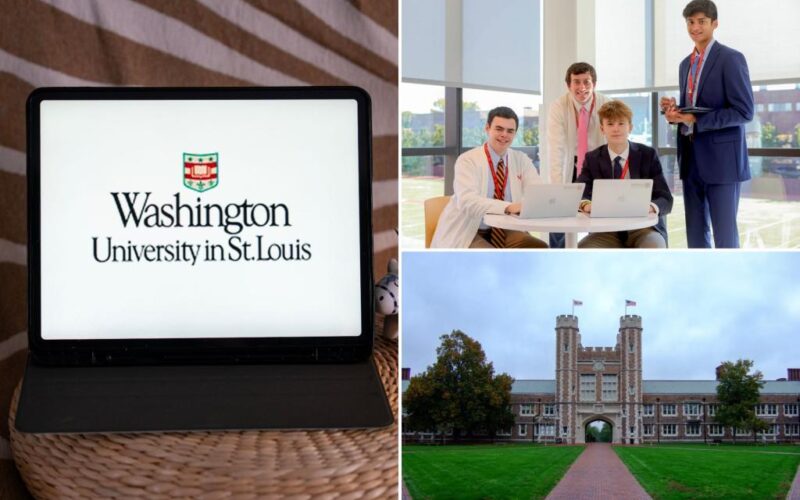They’re getting an A in AI.
A Catholic high school on Long Island is teaming up with a nationally recognized law school to enhance artificial intelligence learning for teenagers, enabling them to become more savvy and responsible with the emerging technology.
“It’s going to really help navigate the new world that we’ve grown up in,” Chaminade senior John Durham told The Post of the new partnership with Washington University School of Law.
“It’s also about using it the right way — and using it as a tool, not a crutch,” he added.
The two institutions joined forces months after a handful of Chaminade students in March designed their own AI language model, “Buddy Bot,” a program that helped students constructively reduce their screen time and decrease doomscrolling.
“Our friends actually have stopped looking at their phones as much since,” said co-creator and sophomore Ty Miranda.
“My screen time is down about five hours a week now,” added 10th grader Andrew Runje Dargento, who also developed the app.
Their prize-winning software caught the eye of Chaminade class of 2014 alum Oliver Roberts, a prominent constitutional lawyer who teaches at the St. Louis-based law school, which is ranked 14th best in the nation by US News & World Report.
He helped facilitate the two schools teaming up simply because “Chaminade was the most important education of my life,” said Roberts, who added that Dean Stefanie Lindquist was quickly sold.
“Partnering with Chaminade sends a clear message: the future of AI leadership and responsible AI use begins before college,” she said.
The initial program, which bosses are still ironing out a long-term plan for, commences with a writing competition for 12th graders, followed by one for 11th graders, where participants explore where they see the future of AI moving toward, especially in education.
The handful of winners is to be selected by Chaminade administrators and sent to Washington University, which will award the champion students a distinction.
“We try to grab a lot from higher education because our kids really respond to that,” said Gregory Kay, chief academic officer at Chaminade, adding that students are highly engaged in AI learning to begin with.
“When a lot of other schools shut down using ChatGPT in 2022 after it exploded, we instead embraced it, tried to think about ways we could use it.”
Since the school has utilized other education-oriented chatbots in creative ways, such as having them answer kids as if it were a historical figure, or providing extra help for students in large classes.
“It really allows for one-on-one tutoring,” he added, saying that there are still ways to identify plagiarism and AI-written texts turned in by students clearly.
Meanwhile, Durham, Miranda, Runje Dargento, and their peer, senior Fin Galligan, all openly admitted to using ChatGPT daily.
While the boys use it to help with schoolwork — they swear it doesn’t just give them the answers. Galligan, the school’s yearbook editor-in-chief, is also using it for graphic design.
“We had it design us new ideas we can base the yearbook cover off of,” he said. “It was a true help, because, honestly, we aren’t the best artists,” he laughed.
On a deeper level, Galligan is very curious about where AI will be heading in the years to come and may pen his essay on how it will impact his generation entering the workforce.
“As we’re going into college, we have to start thinking about how our future, jobs, majors, things like that will be impacted by AI,” he said.








